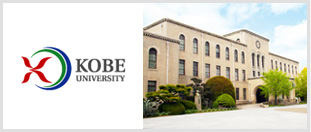Publication in English is mentioned (E); Publication in Japanese is (J).
Aturupane, H., Dissanayake, V., Shojo, M., and Sonnadara, U. (2011) “Strengthening Science Education in Sri Lanka” South Asia Human Development Sector Discussion Paper Series, 45. Washington DC: World Bank. (E)
Aturupane, H., Fielden, J., Mikhail, S., and Shojo, M. (2011) “Higher Education in the Maldives: An Evolving Seascape”, South Asia Human Development Sector Discussion Paper Series, 36. Washington DC: World Bank. (E)
Aturupane, H., Gunatilake, R., Shojo, M., and Ebenezer, R. (2013) “Education, Economic Welfare and Subjective Well-Being in Afghanistan”, South Asia Human Development Sector Discussion Paper Series, 63. Washington DC: World Bank. (E)
Aturupane, H., Gunatilake, R., Shojo, M., and Ebenezer, R. (2013) “Educational Attainment in Afghanistan: An Economic Analysis”, South Asia Human Development Sector Discussion Paper Series, 62. Washington DC: World Bank. (E)
Aturupane, H., Kellaghan, T., and Shojo, M. (2013) “School-Based Education Improvement Initiatives: the Experience and Options for Sri Lanka”, South Asia Human development Sector Discussion Paper Series, 58. Washington DC: World Bank. (E)
Aturupane, H., Little, A., and Shojo, M. (2013) “Transforming Primary Education in Sri Lanka: from a ‘Subject’ of Education to a ‘Stage’ of Education”, South Asia Human Development Sector Discussion Paper Series, 61. Washington DC: World Bank. (E)
Aturupane, H., Savchenko, Y., Shojo, M., and Larsen, K. (2014) “Sri Lanka: Investment in Human Capital”, South Asia Human Development Sector Discussion Paper Series, 69. Washington DC: World Bank. (E)
Aturupane, H. and Shojo, M. (2012) “Expanding Access and Enhancing the Economic Benefits of Education in the Maldives”, South Asia Human development Sector Discussion Paper Series, 54. Washington DC: World Bank. (E)
Aturupane, H. and Shojo, M. (2012) “Enhancing the Quality of Education in the Maldives: Challenges and Prospects”, South Asia Human Development Sector Discussion Paper Series, 51. Washington DC: World Bank. (E)
Aturupane, H., Shojo, M., Jayawardena, R., and Sonnadara, U. (2011) “Strengthening Mathematics Education in Sri Lanka” South Asia Human Development Sector Discussion Paper Series, 43. Washington DC: World Bank. (E)
Gemignani, R., Shojo, M., and Wodon, Q. (2014) “What Drives the Choice of Faith-Inspired Schools by Households? Qualitative Evidence from Two African Countries,” The Review of Faith and International Affairs, 12 (2): 66-76. (E)
Ogawa, K. and Wokadala, J. (2013) “An Analysis on Equity issues in Lower Secondary Education in Uganda”, Journal of International Cooperation in Education. (E)
World Bank (forthcoming) Investing in the Future: Education Expenditures and Financing in Sri Lanka. Washington DC: World Bank (Shojo, M. is one of the main authors). (E)
Olivier, J., Shojo, M. and Wodon, Q. (2014) “Faith-Inspired Health Care Provision in Ghana: Market Share, Reach to the Poor, and Performance,” The Review of Faith and International Affairs,12 (1): 84-96. (E)
Olivier, J., Shojo, M. and Wodon, Q. (2012) “Faith-inspired Health Care Provision in Ghana: Market Share, Reach to the Poor, and Performance,” In Wodon,Q. and Olivier, J. (Eds.), The Role of Faith-inspired Health Care Provision in Sub-Saharan Africa and Public Private Partnerships: Strengthening the Evidence for Faith-inspired Health Engagement in Africa, Volume 1. Washington DC: World Bank. (E)
Shojo, M. (2011) “Universal Primary Education”, “Capacity Development”, “University of East Africa”, Encyclopedia of Comparative Education Studies, Japan Comparative Education Society. (J).
Shojo, M. (2010) “What Does Parental Participation in Education Mean?: Evidence from Malawi”, Journal of Rokko. (E)
Shojo, M., Tsimpo, C., and Wodon, Q. (2012) “Satisfaction with and Reasons for Choosing faith-Inspired Health Care Provision in Ghana,” In Wodon, Q. and Olivier, J. (Eds.), The Comparative Nature of Faith-inspired Health Care Provision in Sub-Saharan Africa: Strengthening the Evidence for Faith-inspired Health Engagement in Africa, Volume 2. Washington DC: World Bank. (E)
Tonegawa, Y. (2013) Analysis of the Relationships between Local Development NGOs and the Communities in Ethiopia: The Case of the Basic Education Sub-Sector. Union Press: Japan. (J)
Tonegawa, Y. (2014) “Working for Whose Benefit? An analysis of Local Development NGOs in Relation to the Communities in Ethiopia” Southern African Review of Education. Vol. 20, No.1, pp.7-29 (E)
Wokadala, J. (forthcoming) “School Management and its effectiveness in Lower Secondary Schools in Uganda: Examining Perceptions of the Practitioners. Journal of Comparative Education Society. (E)
Wokadala, J. (2014) “Examining Effects of School and Teacher Inputs on Productive Efficiency of Ugandan Primary Schools? A Stochastic Frontier Analysis”, Africa Education Research Journal. (E)
World Bank (2013) Higher Education in Afghanistan: An Emerging Mountainscape. Washington DC: World Bank (Shojo, M. is one of the main authors). (E)
World Bank (2012) Human Capital for a Modern Society: General Education in the Maldives. An Evolving Seascape, Washington DC: World Bank. (Shojo, M. is one of the main authors). (E)
World Bank (2011) Human Capital for a Knowledge Society: Higher Education in the Maldives. An Evolving Seascape, Washington DC: World Bank. (Shojo, M. is one of the main authors). (E)
World Bank (2011) Transforming School Education in Sri Lanka: From Cut Stones and Polished Jewels, Washington DC: World Bank. (Shojo, M. is one of the main authors). (E)


